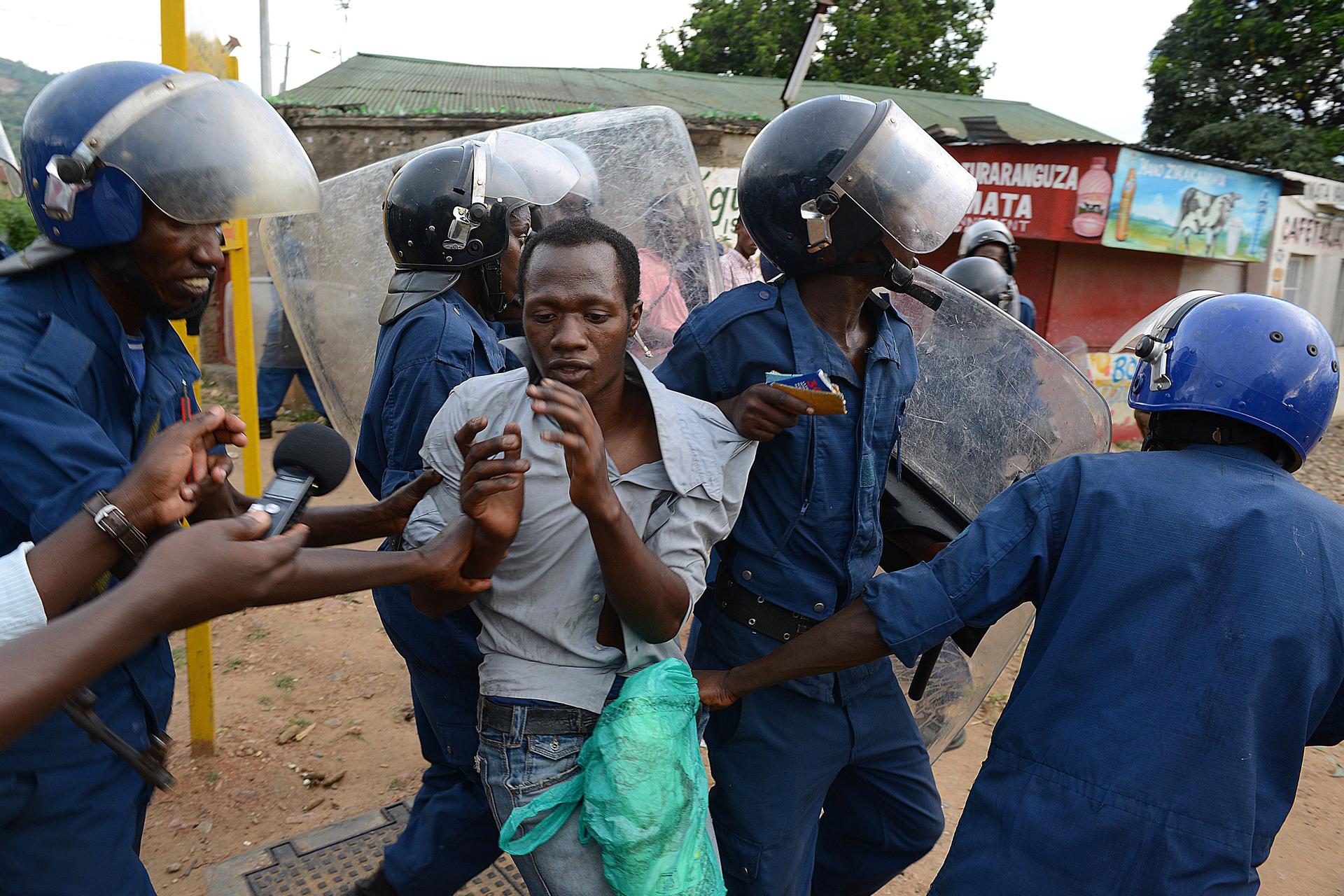More than 20,000 people are fleeing a police crackdown in Burundi
Burundian police detain a protester in Musaga, on the outskirts of Bujumbura, on April 28, 2015, during a protest against the president's bid to cling to power for a third term.
JOHANNESBURG, South Africa — In Burundi, a fragile democracy is at stake.
For a fourth day protesters have stood up to their president, President Pierre Nkurunziza, who is seeking a third term — a violation of the country's constitution.
At least seven people have since been killed in street clashes with police, and scores more injured. Civil society leaders have been arrested, independent radio stations shut down and social media services blocked.
Some 20,000 people have fled landlocked Burundi to neighboring Rwanda, with others leaving for Tanzania and the Democratic Republic of Congo.
"In various Bujumbura neighborhoods, young people have taken to the streets, chanting slogans that condemn the nomination despite the government ban on protests," writes Yolande Bouka, a researcher with the Institute for Security Studies.
The protests began Saturday when Nkurunziza was nominated to run in June elections by his party, the National Council for the Defence of Democracy — Forces for the Defence of Democracy (CNDD-FDD). It's a party that, despite having the word democracy twice in its name, has shown little respect for it.
A third term for Nkurunziza would violate Burundi's constitution, as well as the Arusha Agreement, a peace deal that ended the country's 12-year civil war in 2005.
For more than a year there has been speculation about whether Nkurunziza, a former rebel leader in power since the end of the war, would stand for the presidency again. Nkurunziza and his allies claim he can run again because his first term, he was appointed by lawmakers and not elected.
On Wednesday, Tom Malinowski, a top US diplomat, tweeted that he was heading to Burundi, noting that he was "disappointed" with the president for violating the Arusha Accord but that it was not too late for the leadership and people to keep to a "peaceful democratic path."
More than 300,000 people died in the Burundian civil war, in fighting between the minority Tutsi-dominated army and predominately Hutu rebel groups. Reports indicate that the current struggle is about power, not ethnicity, but concerns remain that the violence could escalate along ethnic lines.
Under Nkurunziza's rule, human rights groups have noted a worrying escalation of political killings since the 2010 elections.
"With this decision, Burundi is losing an historic opportunity to strengthen its democracy by establishing a tradition of peaceful democratic transition," the US government said in a statement.
Every day, reporters and producers at The World are hard at work bringing you human-centered news from across the globe. But we can’t do it without you. We need your support to ensure we can continue this work for another year.
Make a gift today, and you’ll help us unlock a matching gift of $67,000!
